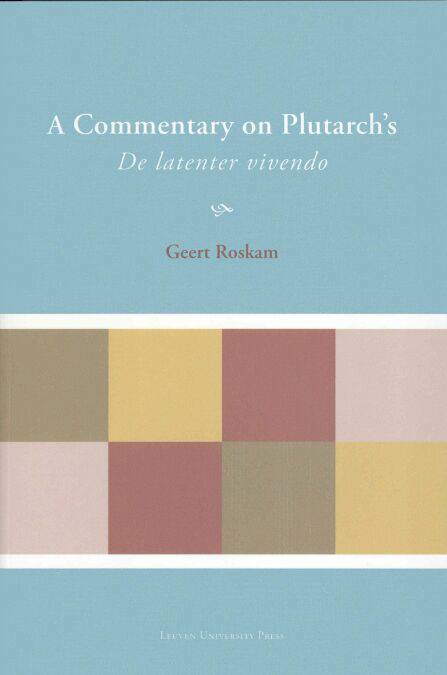
Je cadeautjes zeker op tijd in huis hebben voor de feestdagen? Kom langs in onze winkels en vind het perfecte geschenk!
- Afhalen na 1 uur in een winkel met voorraad
- Gratis thuislevering in België vanaf € 30
- Ruim aanbod met 7 miljoen producten
Je cadeautjes zeker op tijd in huis hebben voor de feestdagen? Kom langs in onze winkels en vind het perfecte geschenk!
- Afhalen na 1 uur in een winkel met voorraad
- Gratis thuislevering in België vanaf € 30
- Ruim aanbod met 7 miljoen producten
Zoeken
Omschrijving
Plutarch's De latenter vivendo is the only extant work from Antiquity in which Epicurus' famous ideal of an 'unnoticed life' (lathe biosas) is thematised as such. Moreover, the short rhetorical work provides a lot of interesting information about Plutarch's polemical strategies and about his own philosophical convictions in the domains of ethics, politics, metaphysics, and eschatology.
In this book, Plutarch's anti-Epicurean polemic is understood against the background of the previous philosophical tradition. An examination of Epicurus' own position is followed by a discussion of Plutarch's polemical predecessors (Timocrates, Cicero, the early Stoics, and Seneca) and contemporaries (Epictetus), and by a systematical and detailed analysis of Plutarch's own arguments. The lemmatic commentary offers additional information and parallel passages (both from Plutarch's own works and from others authors) that cast a new light on the text.
In this book, Plutarch's anti-Epicurean polemic is understood against the background of the previous philosophical tradition. An examination of Epicurus' own position is followed by a discussion of Plutarch's polemical predecessors (Timocrates, Cicero, the early Stoics, and Seneca) and contemporaries (Epictetus), and by a systematical and detailed analysis of Plutarch's own arguments. The lemmatic commentary offers additional information and parallel passages (both from Plutarch's own works and from others authors) that cast a new light on the text.
Specificaties
Betrokkenen
- Auteur(s):
- Uitgeverij:
Inhoud
- Aantal bladzijden:
- 279
- Taal:
- Engels
- Reeks:
Eigenschappen
- Productcode (EAN):
- 9789461660190
- Verschijningsdatum:
- 7/04/2017
- Uitvoering:
- E-book
- Beveiligd met:
- Digital watermarking
- Formaat:

Alleen bij Standaard Boekhandel
+ 26 punten op je klantenkaart van Standaard Boekhandel
Beoordelingen
We publiceren alleen reviews die voldoen aan de voorwaarden voor reviews. Bekijk onze voorwaarden voor reviews.









